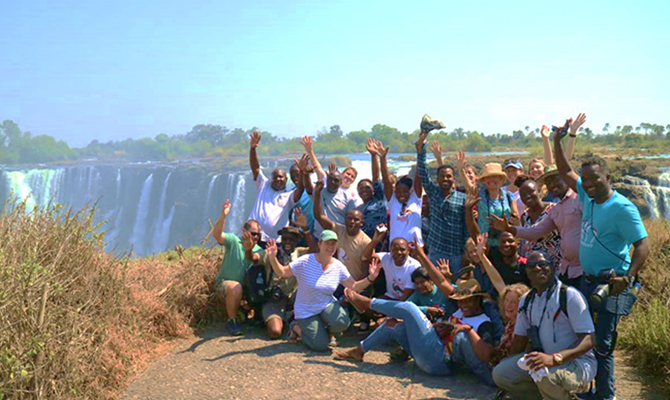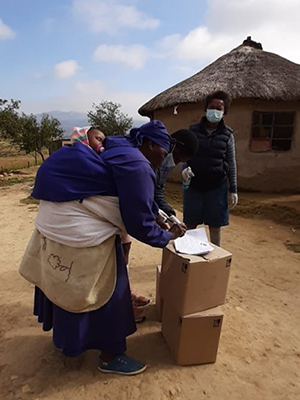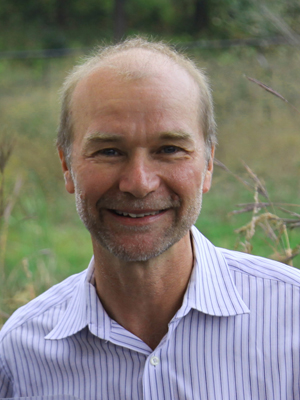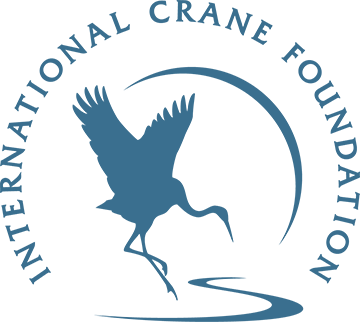
Dear Friends,
Our world is reopening with a confusing mix of caution and a rush to a “new normal,” compounded by long-standing racial and economic disparities that are exploding on our streets in protest as I write. The International Crane Foundation is a global organization dedicated to bringing people together for conservation on five continents and empowering the most vulnerable communities who share their lands with cranes. As the leader, I’ve been thinking about the valuable lessons this crisis is teaching us that will make our mission stronger than ever.
Our senior leadership team is focused on looking forward—”scanning the horizon”—for the emerging challenges and opportunities we see during and after the pandemic. While I expected a lot of concern around the negative impacts of this crisis on our work, I’ve been pleasantly surprised to see so many positive opportunities as well. I have shared some of those opportunities in past blogs, seizing on the new global mandate to reduce illegal trade and refocusing our global response to fight climate change. I will share more in the future.
Our crisis management team, drawn from key staff in positions across our organization and led by our Chief Operating Officer Kim Smith, has provided exceptional leadership since the beginning of the pandemic. To sustain the strongest team possible during and after the global pandemic, we have learned that four things matter most: caring for staff, connecting staff, providing credible information, and carrying-on with our mission.

We care deeply about keeping our aviculture and site management teams safe through careful workplace management and social distancing. They, in turn, assure the well-being of our genetically-valuable flock. For staff working from home, we created a support group for parents managing work and young kids to provide a constant supply of encouragement to “keep calm and crane on.” And some of our staff are truly resourceful. To keep sane in South Africa during their mandatory stay-strictly-at-home requirement enforced by martial law, Bradley Gibbons (who usually runs our high grassland crane conservation efforts) ran an entire marathon around the perimeter of his house—422 laps! We encourage our staff to provide caring back to our communities through volunteer opportunities as well. My family and I assemble care boxes each week through our local food bank, providing food support to tens of thousands of families in the area.
Our global staff is better connected than ever during the crisis. Our weekly all-team meeting has blossomed to include more than 80 people participating and sharing updates from China, Russia, Myanmar, Vietnam, Kenya, Uganda, Zambia, South Africa, Texas, and here in Wisconsin. Their stories are a constant reminder that we are one world fighting the coronavirus, and fighting for conservation, together. We’ve also learned during these times of lockdown the incredible value of having self-reliant, well-trained, and highly capable teams at the front lines of everywhere we work.
Day in and day out, we strive to provide trustworthy information to help our staff, and our organization, make good decisions based on sound science and reliable sources. We constantly filter through national, state, and local recommendations in the U.S. and every country where we work to distill useful guidance from the chaos of conjecture and misinformation. We are fortunate that our local Sauk County Public Health Service has been an outstanding partner throughout this crisis. We are also very grateful to our Emeritus Board Director and crisis management expert, Regina Phelps, for her wisdom and assistance. As we carefully reopen our field programs, offices, and beautiful remodeled campus over the months ahead, I am confident we will do so in a way that keeps our staff and visitors safe and inspired.
We will carry on with our important mission, no matter what. Some of our staff remain busier than ever throughout the crisis with their normal work plans, while we have redeployed others to help in areas with the most need. Flexibility is essential. The global pandemic has not slowed the threats to cranes and the vital places they (and we) need. Plans for ill-conceived dams and other negative land-use changes have proliferated worldwide during the crisis while attention is diverted. To address these emerging challenges, we are exploring new ways to strengthen local partnerships and government relations “virtually” to secure cranes and the bountiful wetlands they need, and better support the communities who depend on these lands for their livelihoods.
It takes a strong, diverse team to run a successful, high-impact organization during a global crisis. Our cranes, our shared natural heritage, and the looming threat of climate change need our attention for the long haul. We will continue learning, adapting, and sharing as we go.
Thank you for your support and your commitment to making the world a better place.
 Wishing you good health and peace in the days ahead,
Wishing you good health and peace in the days ahead,
Rich Beilfuss
President and CEO
